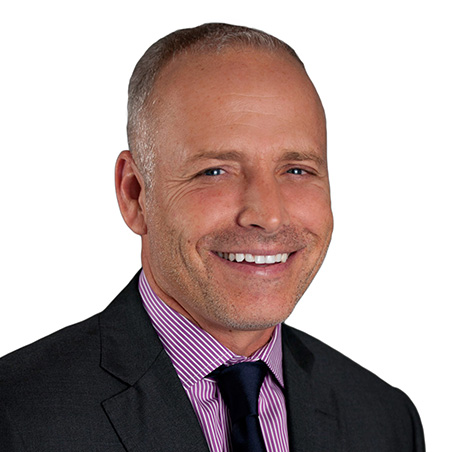Supporting Effective Managment and Governance
Public pension and Other Post-Employment Benefit (“OPEB”) plans play a crucial role in providing retirement security for millions of individuals. To help ensure their effective management and governance, it is essential for committees entrusted with oversight responsibilities to adopt best practices. These practices contribute to maintaining transparency, accountability and the financial health of the pension and OPEB plans.
Establish Clear Roles and Responsibilities
One of the fundamental best practices for committees is to clearly define the roles and responsibilities of committee members. This includes specifying decision-making authority, fiduciary duties and the scope of their activities. Clear delineation of roles helps avoid confusion so that each member understands their contribution to the committee’s objectives.
Role of the Committee
The committee should oversee the administration of the pool of assets, monitor its financial performance and ensure compliance with relevant regulations. Members should also be involved in setting investment policies and strategies to achieve the plan’s long-term goals.
Fiduciary Duties
Committee members have a fiduciary duty to act in the best interests of plan participants. While public plans are not subject to Title 1 of ERISA, which deals with fiduciary duties, they are subject to applicable provisions in the Internal Revenue Code (“Code”) and state laws. This includes prudently managing the plan’s assets and avoiding conflicts of interest.
Promote Transparency and Communication
Transparency and effective communication are vital for building trust with plan participants and stakeholders. Committees should provide regular updates on the plan’s financial status, investment performance, policy changes and other relevant information.
Meetings and Reporting
Committee meetings should include comprehensive reports on the plan’s financial status, investment performance and actuarial assumptions. These reports should be readily accessible to all plan participants and stakeholders. Minutes from meetings provide a formal record of decisions, action items and significant discussions.
Stakeholder Engagement
Engaging with stakeholders, including active members and retirees as well as taxpayers, helps ensure that their concerns and suggestions are considered in the decision-making process. Holding regularly scheduled meetings that are open to the public and issuing newsletters are effective ways to keep stakeholders informed.
Adopt Robust Governance Structures
Strong governance structures help in maintaining the integrity of the plan and supporting its sustainability. Committees should establish policies and procedures that guide their decision-making processes.
Investment Policies
A well-defined investment policy statement (IPS) is crucial for guiding the committee’s investment decisions. The IPS should outline the plan’s investment objectives, risk tolerance, asset allocation strategies and performance benchmarks.
Ethical Standards
Committees should adopt a code of ethics that sets standards for professional conduct and prohibits conflicts of interest. Members must disclose any personal or financial interests that could affect their judgment.
Provide Comprehensive Training and Education
Continuous education and training are essential for committee members to stay updated on industry trends, regulatory changes and best practices in public funds management.
Initial Orientation
New committee members should participate in an orientation covering the plan’s history, governance, investment policies, funding policies and fiduciary duties to help prepare them for their role. This program will also allow new members to ask questions and develop historical context while gaining a deeper understanding of their responsibilities.
Ongoing Education
Committee members should participate in workshops, seminars and conferences to further enhance their understanding of public funds management. Topics may include investment and funding strategies as well as actuarial assessments.
Utilize External Expertise
Engaging external experts, such as investment advisors, actuaries and legal counsel can enhance the committee’s decision-making capabilities and provide valuable insights.
Investment Advisors
Credentialed investment advisors can help in developing and implementing investment strategies that align with the plan’s objectives. They can also provide guidance on market trends and risk management.
Actuarial Services
Actuaries play a crucial role in assessing the plan’s financial health and forecasting future liabilities. Their expertise helps in making informed decisions regarding investment, funding and benefit policies.
Legal Counsel
Legal counsel oversees plan compliance with all relevant laws and regulations. They can also provide advice on governance issues and dispute resolution.
Good governance for public pension and OPEB plans is essential for their sustainability and reliability. By prioritizing transparency, accountability, sound investment governance, robust governance structures, stakeholder engagement and continuous improvement, pension plans can manage the financial security of retirees and contribute to the overall stability of the retirement system. For more information on establishing a robust governance process, please contact any of the professionals at Fiducient Advisors.
The information contained herein is confidential and the dissemination or distribution to any other person without the prior approval of Fiducient Advisors is strictly prohibited. Information has been obtained from sources believed to be reliable, though not independently verified. Any forecasts are hypothetical and represent future expectations and not actual return volatilities and correlations will differ from forecasts. This report does not represent a specific investment recommendation. The opinions and analysis expressed herein are based on Fiducient Advisor research and professional experience and are expressed as of the date of this report. Please consult with your advisor, attorney and accountant, as appropriate, regarding specific advice. Past performance does not indicate future performance and there is risk of loss.


